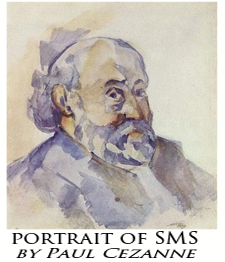TALMUD: Love Prevents Jealousy
 by Rabbi Yisrael Kaniel – April 26, 2015
by Rabbi Yisrael Kaniel – April 26, 2015
In the beginning of the Torah portion of Kedoshim, the renowned medieval commentator R. Moshe ben Nachman, a.k.a. Ramban or Nachmanides cites a statement of our Sages in Vayikra Rabbah in which they say that this Torah portion contains a rephrasing of each of the Ten Commandments.
An example of this rephrasing is “I am the L-rd Your G-d” (Vayikra 19:3) that rephrases the first of the

Nachmanides should have special meaning to Jews like my family because he was the leading figure in the debates set up by the Christian rulers of Spain to prove that Judaism was not only a failed religion but that the Jews were a cursed race. During the debates, Rabbi Nachmanides faced off vs an avid inquisitor who, as a former Jew, tried to show that , in rejecting Jesus, the Jews proved that Jewish teaching, the Talmud, was unable to understand the difference between good and evil. Judaism was just a failed effort at Christianity. In this text, Rabbi Kaniel shows how the Ramban used the Jewish analysis of the Ten Commandments to resolve the conflict between jealously and love. This is a very personal issue for me. I believe the conflict over the heritage of my father from Buchenwald, grows only out of sibling rivalry. Why should it be so hard to detach ourselves from feeling jealously of who controls these materials? Our shared goals ought to be simple .. to see that our fathers’ story is told. that these materials are preserved for the survivors of Buchenwald to see and comment on, and to preserve the images for our own grandchildren and their descendants.
Kaniel
Ten Commandments. Likewise “Molten gods you shall not make for yourselves” (Vayikra 19:4) rephrases the second of the Ten Commandments. In the case of the tenth of the Ten Commandments, the Sages link it (“Thou shall not covet”) with the verse “Love your neighbor as yourself” (Vayikra 19:18).
The late rosh yeshiva of Yeshivat Knesset Yisrael (“Chevron”) R. Simcha Zissel Broide is reported to have commented that it would appear that the prohibition against coveting in the Ten Commandment should be linked to the human characteristic of greed or lust. Instead, we see from our Sages that the prohibition against coveting is not so much related to avarice or passion. Rather it is related to a lack of ahavat Yisrael (love of one’s fellow Jew).
R. Broide continues that it is not so much that one desires the other individual’s house or car or spouse. Rather, the coveter finds it hard to accept that the other individual has that house or car or spouse. The coveter cannot come to peace with the idea that someone else has something better than he or she has. This inability to accept one’s neighbor’s having something more, R. Broide suggests, in accordance with our Sages, is not necessarily a result of simple jealousy; it is a lack of ahavat Yisrael. The cure for this is to love your neighbor as you love yourself.
A person who really loves someone and wants the best for him or her, R. Broide notes, does not mind if that person has something better than himself. Our Sages tell us that a person will be jealous of anyone except his child or his disciple (Babylonian Talmud, Sanhedrin 105b). When such a love exists as between parent and child or teacher and disciple, the parent / teacher welcomes the child / disciple having things better than he had it. There is no room for jealousy when such love exists.
Our Sages are teaching us that if we would have more “love another like oneself” in the world, we would have less “coveting” in the world – love prevents jealousy. What a wonderful thing to aspire to! Let us all attempt this. It can only help – as individuals and for society at large.